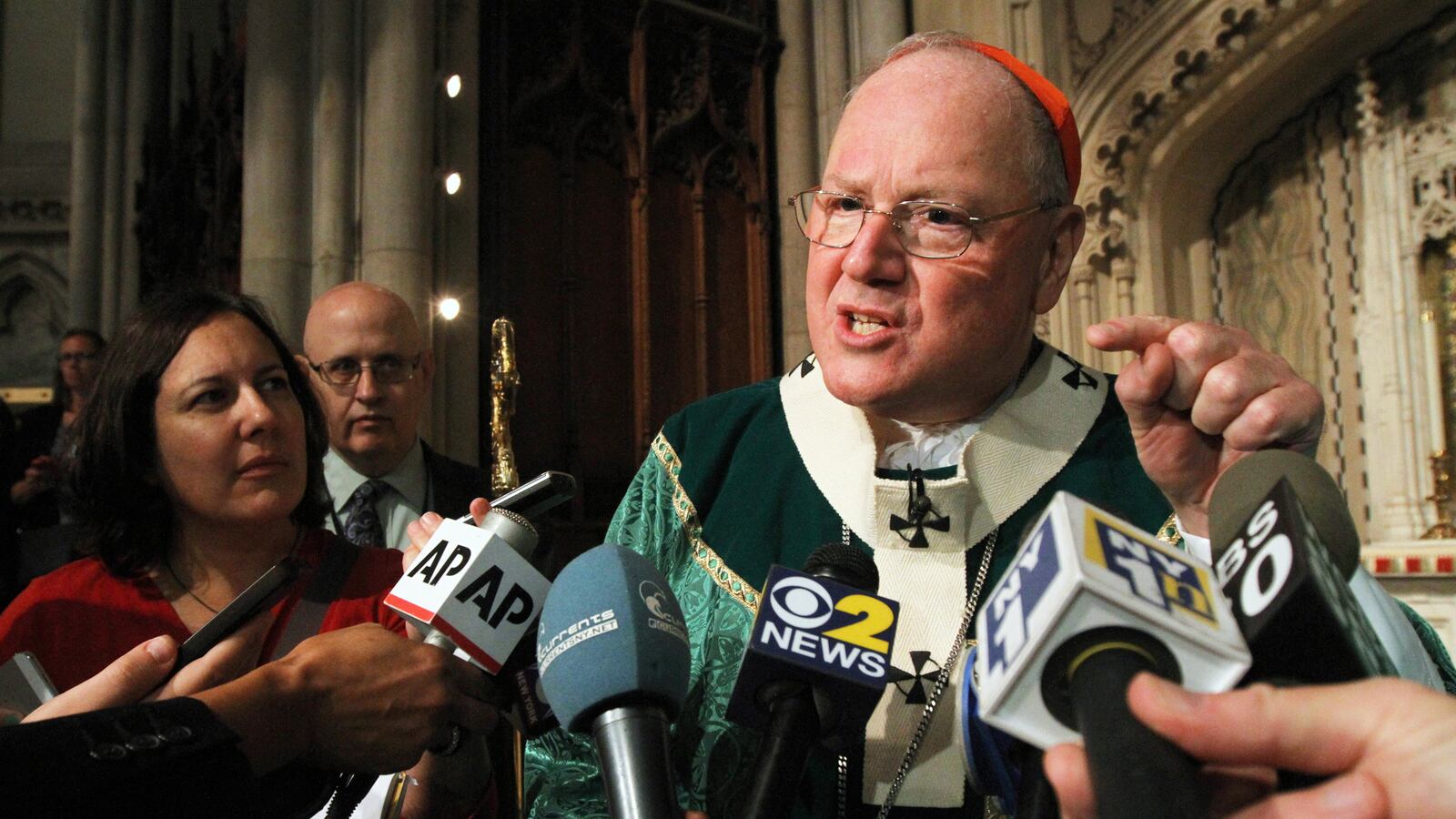Last week, Cardinal Timothy Dolan, the archbishop of New York, made an urgent request to House Speaker John Boehner on behalf of the Catholic Conference of Bishops. He asked Boehner, a Catholic, to pass stalled immigration reform legislation, calling the current immigration system “a stain on the nation’s soul.”

But on Wednesday, Boehner told reporters immigration reform isn't going anywhere fast. "We have no intention of ever going to conference on the Senate bill," Boehner said, all but guaranteeing that reform will be pushed into 2014 and the chaotic politics of the mid-term elections.
Dolan and the bishops are just one piece of an unprecedented coalition of religious leaders—from Southern Baptists to conservative Catholics to religious progressives—who have combined their efforts this year to convince Congress to pass immigration reform.
Together and on their own, they have prayed for members of the House and Senate, held press conferences, staged fasts, and button-holed representatives, both in Washington and at home in their districts, all in an effort to press what they see as the Bible's critical teachings—the country's moral obligation to accept immigrants while also respecting the rule of law.
At the beginning of the year, proponents of reform had hoped that the increased role of evangelical leaders might give immigration legislation enough of a lift to get through the GOP-led House, where social conservatives dominate the ranks of the chamber, which is 88 percent Christian. Instead, they have run into a buzz saw of resistance from Tea Party groups and talk radio hosts, all threatening to run primaries against Republicans who support reform, especially with a path to citizenship for unauthorized immigrants.
Dr. Richard Land, the president of the Southern Evangelical Seminary, has been deeply involved in the push for immigration reform for more than a decade. He calls himself a Christian, an American, a conservative, and a Republican (in that order), but he says he cannot understand the motivations of fellow Republicans now blocking immigration reform.
“I can only come to the conclusion that, because these are not ignorant people, they would rather be in control of a largely white, minority party that negotiates with the majority party, than be a part of, but not in control of, a multi-ethnic party that can win national elections,” Land said. “I’m not naming any names, but I have tried to decide why people of apparent intelligence and whose instinct for self-preservation has not been extinguished, why they would take the position they take.”
One motivation for Republicans might be self-preservation alone. After Sen. Marco Rubio led the way for the Senate's comprehensive reform bill that included a path to citizenship, Tea Party groups in his home state who were among his earliest supporters excoriated him for supporting "amnesty" and vowed to defeat him in his next primary election. Rubio now says a comprehensive bill, like the one he helped to write, is the wrong approach.
"Maybe Republicans think someday this will be like the TARP vote that will hang over their record and some right-winger will say, 'He's for amnesty for brown people,’" says Frank Sharry, executive director of America's Voice, a pro-reform group.
"It just goes to show the Tea Party tail is wagging the Republican dog. Everybody is for this. There are maybe five conservative journalists, Heritage Action, and one national Tea Party group that opposes it. Republicans can't stand up to those people?"
Among the Republican constituencies that do support reform, including the U.S. Chamber of Commerce, the agriculture industry, the high-tech industry, and the Catholic Church, Sharry says evangelicals may be the most important. In 2012, 50 percent of GOP primary voters were white evangelicals
"When I talk to Republican operatives, it’s very important that they’re at the table," he says. "In some ways, they're more important than the business community because they are seen as such an important part of the GOP base. Is it enough? It remains to be seen."
Matthew Soerens, field director for the Evangelical Immigration Table who had been lobbying Congress to pass a bill this year, says his group isn't giving up, despite the autopsies already being written for immigration reform.
"We are people of prayer who don’t believe in impossibilities," Soerens says. "But every day we don't have immigration reform, there are tangible negative impacts in our communities and for our economy. I think that there will be tangible negative political impacts for those opposing us as well."
A recent poll sponsored by the Ford Foundation showed that two-thirds of white evangelicals support comprehensive reform.
Richard Land is quick to point out that he does not believe Democrats are without blame over immigration reform's precarious future. “There are people in both parties who would rather have the issue than the bill...who very aggressively don’t want a solution."
But for the future of his own party, and most especially his church, Land says immigration reform needs to pass, even if it has to wait for the next president, who Land believes will support immigration reform whether they're a Republican or a Democrat.
"If Republicans nominate someone who is not pro-immigration reform, they won't win. It's just that simple," Land says.
But can a pro-reform Republican get through the GOP primary process, where Tea Party voices will be the loudest?
"At the end of the day, Republicans are facing a stark choice," Frank Sharry says. "And they






